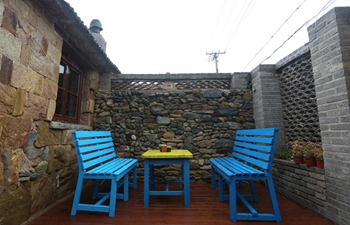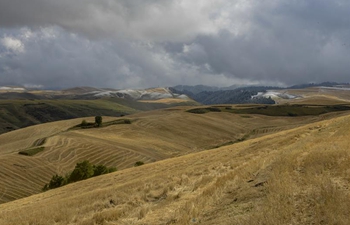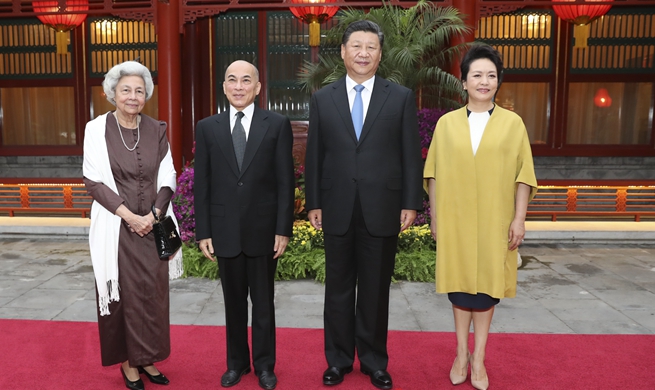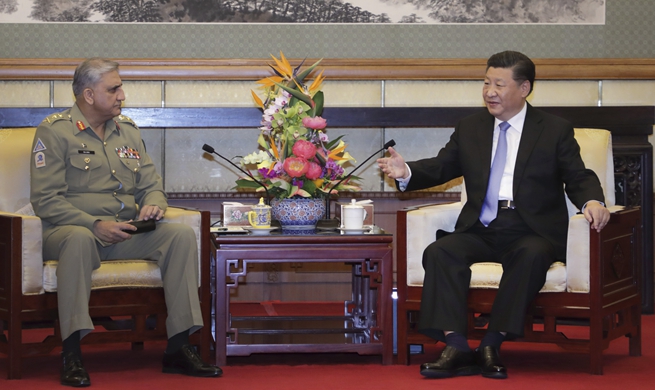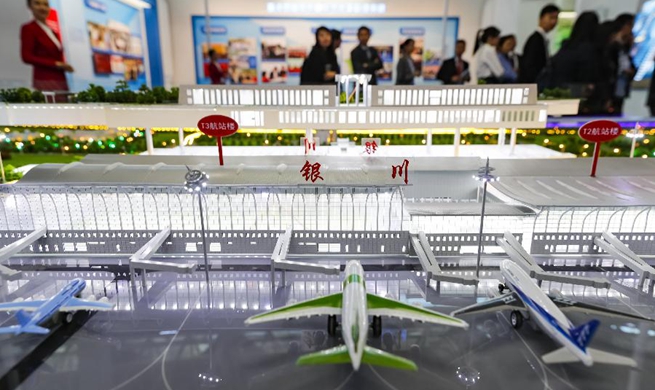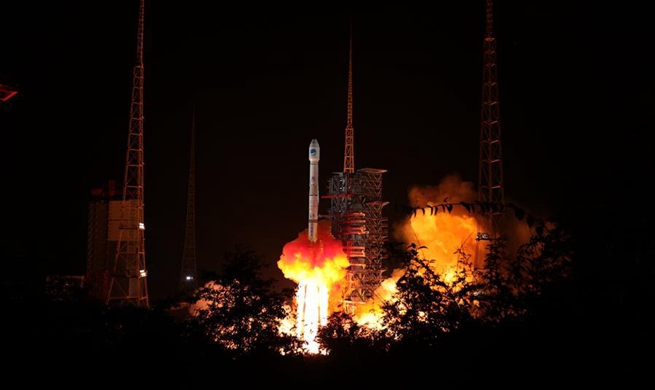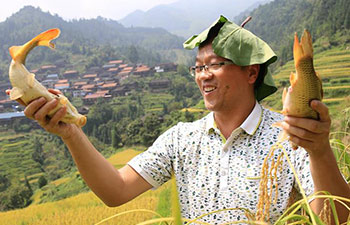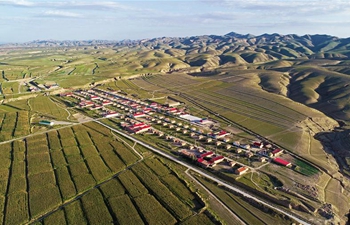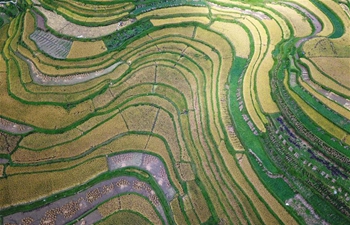JINAN, Sept. 20 (Xinhua) -- Zhang Xinqiao, who used to be owner of a small polluting business in east China, never expected himself to be an environmental protection star.
Zhang had been running his small air conditioner wind valve processing business in Wucheng County of Shandong Province for over 20 years before running into tough environmental protection measures.
China's tough environmental protection campaign has led to positive changes.
The central air-conditioning industry in Wucheng started in the mid 1980s and became a pillar industry of the county, grabbing one-tenth of the country's central air conditioner market.
In the past three decades, many air-conditioning businesses have sprung up. By the end of 2016, there were nearly 160 such companies with annual revenue of 20 million yuan (2.9 million U.S. dollars) or more, and 2,000 smaller individually-owned businesses. Many of the small firms lacked pollutant treatment facilities and thus were major sources of local air pollution.
"Many people were just like me. They set up family workshops by renting a few rooms in the village and buying simple processing equipment," Zhang said.
Luquantun Township is an industrial heartland of Wucheng where almost every village used to have small polluting firms. On 4 hectares of land outside Xingzhuang Village, there used to be 43 air conditioner suppliers, with an additional 14 inside the village.
"Our villagers had been inflicted by noise, pungent odour and dust for years," said Zhao Jinkui, Communist Party chief of the village.
Things started to change in 2016 when China launched tough environmental protection inspections nationwide. In August 2017, the central government dispatched an environmental inspection team to Shandong.
Zhang Lei, the Party chief of Wucheng, said the local government shut down a number of small polluting firms and helped some to add environmental protection equipment.
Meanwhile, some joined hands with large companies with complete environmental protection equipment in a shared factory model, according to Zhang.
Zhang Xinqiao was among the first to respond to the new model. He closed his small family workshop and brought his technology, fund and several experienced workers to become a partner of Zhongwei Air-conditioner Equipment Co. Ltd., sharing the factory, technology, orders and profits.
Zhang said that after buying new production and environmental protection facilities, his annual orders are expected to hit 10 million yuan this year, up from some 400,000 yuan in past years.
"We are receiving more orders and meanwhile, the production environment is cleaner," he said.
In earlier years, the small workshops were a headache for Zhang Chuanyi, chairman of Zhongwei Air-conditioner Equipment. The cut-throat competition left some of the capacity in Zhongwei idle.
After a one-year environmental pollution crackdown, the number of central air-conditioning firms in Wucheng with annual revenue of 20 million yuan or more increased by 73, and the number of individually-owned businesses decreased by 89 percent to 226.
The factories outside Xingzhuang Village have been demolished to make way for a new public cultural place. "Now the noise and dust have disappeared," Zhao Jinkui said.
The shared factory model has not only prompted industrial upgrading, but also kept local talent and jobs. In 2017, the air-conditioning industry in Wucheng saw electricity consumption up 22 percent and tax revenues up 39.3 percent.
Luquantun Township creates 50,000 jobs for locals and a further 15,000 for workers from neighboring regions. Many farmers who worked in the small polluting firms before, now earn 7,000 yuan more per year in the shared factories.
The environmental protection campaign has improved the air. The level of PM2.5, health-damaging smaller airborne particles, declined 19.1 percent last year in Wucheng.
Zhang Xinqiao used to play cat and mouse with the local environmental protection authorities, but has now become a star in the eyes of local officials.
"For us, the environmental protection storm is not a crisis, but an opportunity for rebirth," he said.




